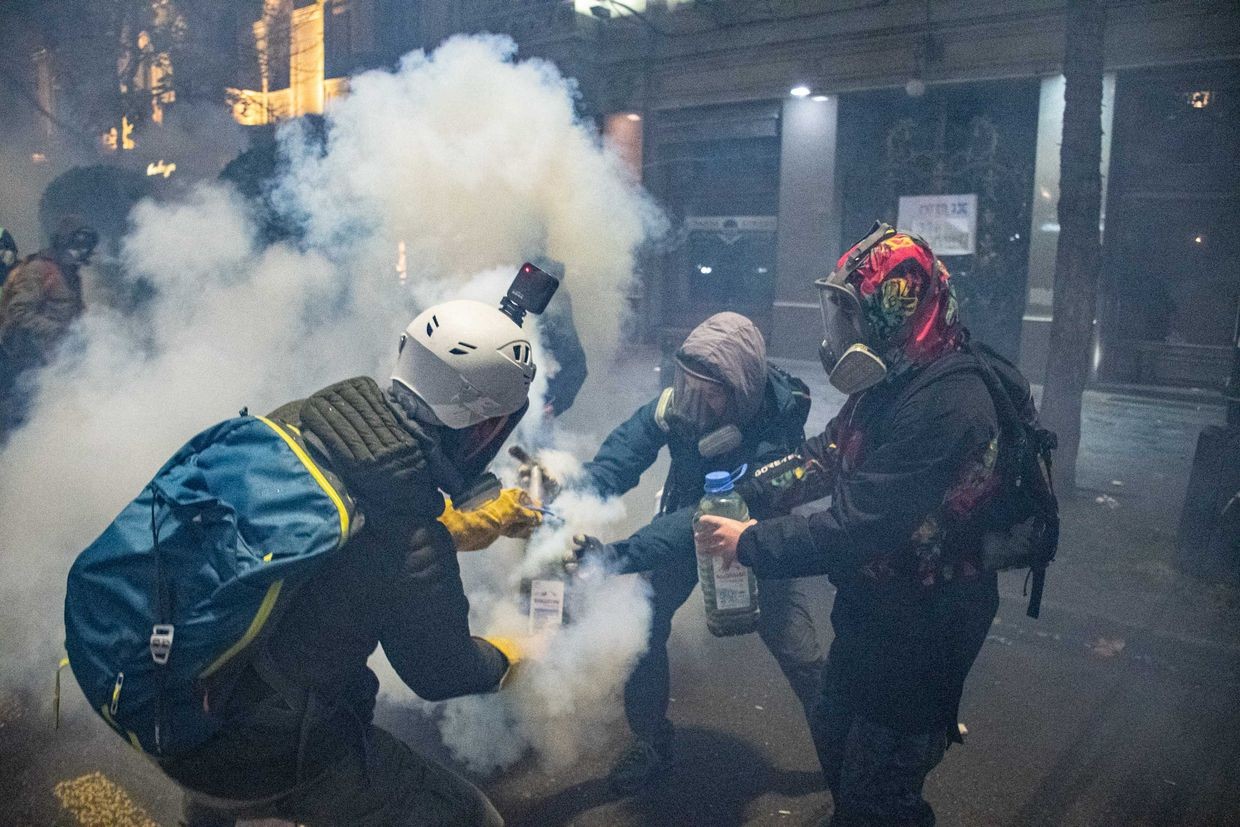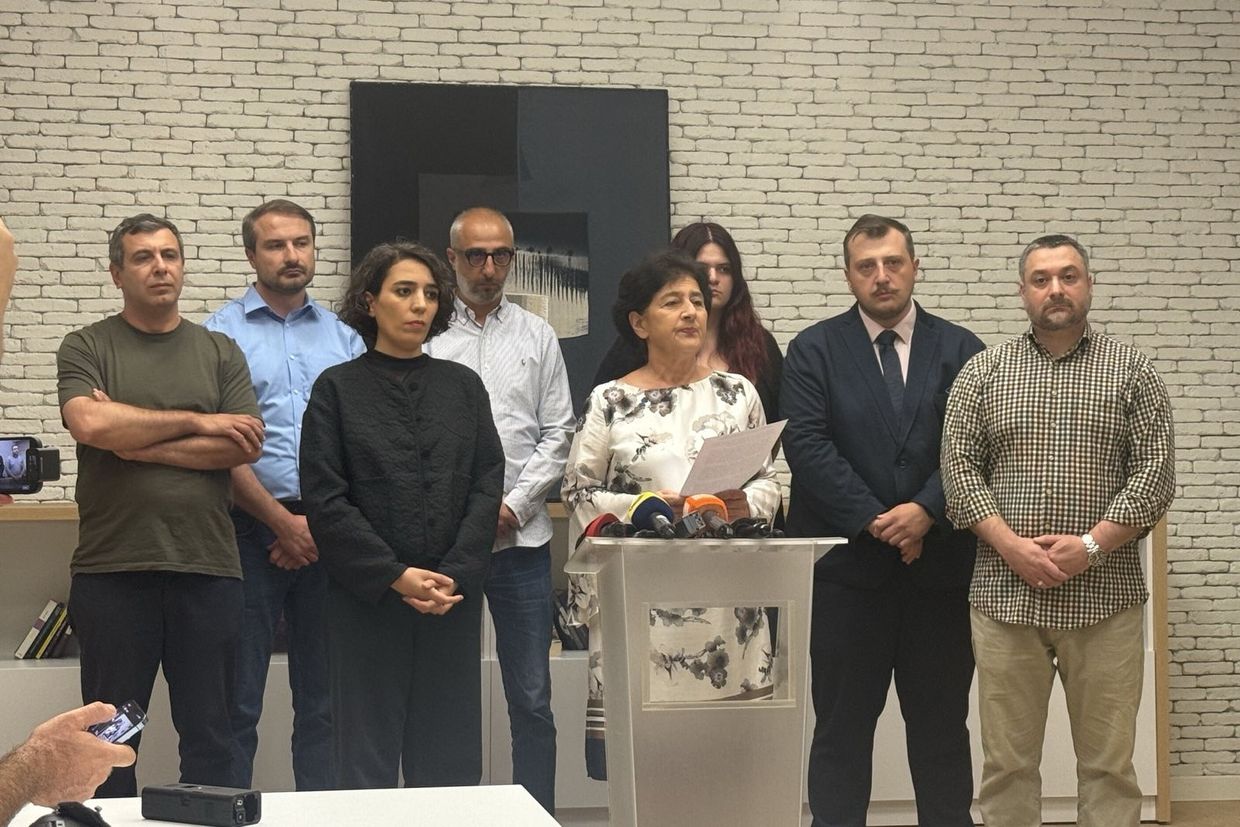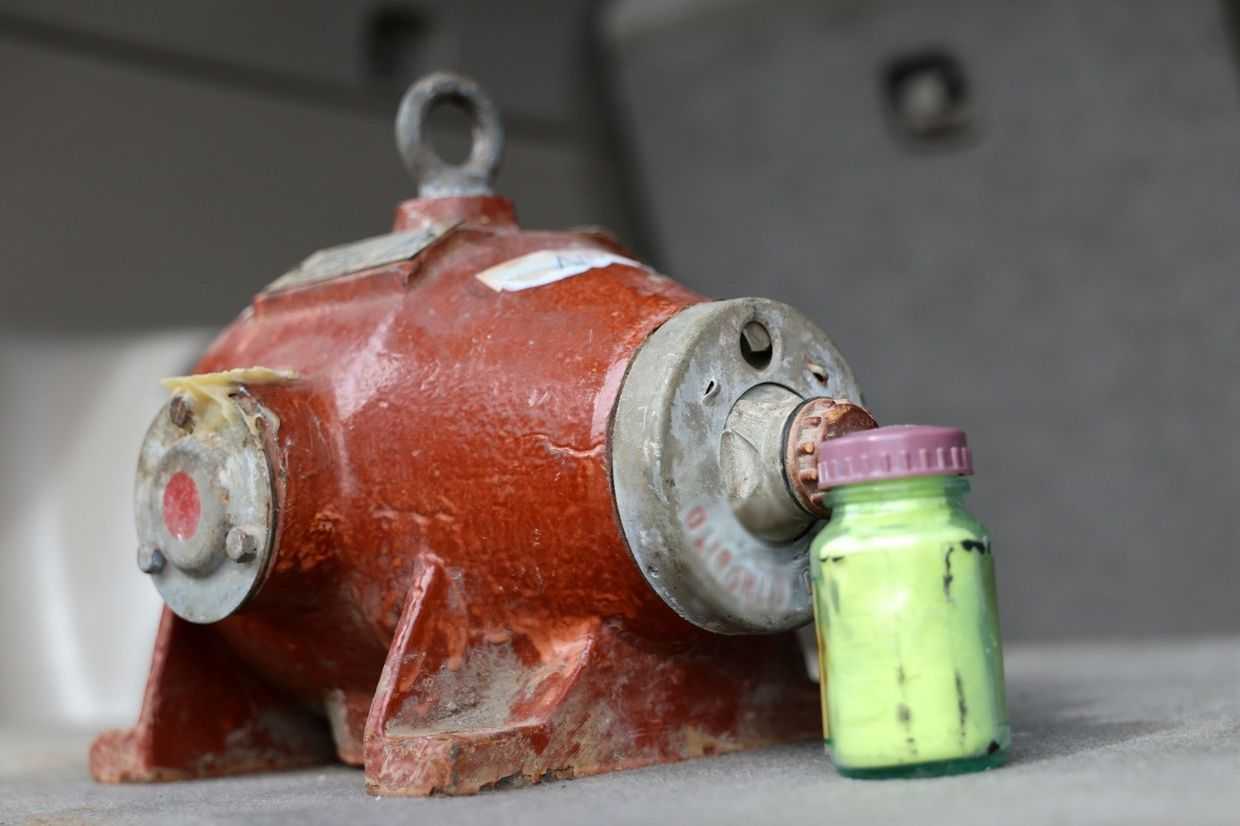
The Georgian pro-government TV channel, Imedi, has published a list of basic protective equipment purchased by six leading civil society groups, claiming this was evidence used to freeze their accounts.
Since Wednesday, when the court approved the asset freeze requested by the Prosecutor General’s Office, Imedi has made multiple reports labelling the organisations as ‘rich NGOs’ and ‘organisers of violent rallies’ who were ‘sabotaging the state’.
The Prosecutor’s Office has accused the organisations of facilitating violence in the early phase of the ongoing anti-government protests.
To support this claim, Imedi published ‘exclusively obtained’ purchase documents, according to which the targeted organisations bought masks, respirators, protective goggles, and other materials during the protests.
Among those targeted by the Prosecutor’s Office are leading civil society groups, including the International Society for Fair Elections and Democracy (ISFED), the Civil Society Foundation, the Institute for Development of Freedom of Information (IDFI), the Social Justice Centre (SJC), and Sapari. The accounts of the Georgian Democratic Initiative (GDI) and Democracy Defenders were also frozen.
In its reports, Imedi reviewed the purchases of six out of the seven organisations.
For example, according to Imedi, GDI bought 20 masks of different types, five pairs of goggles, and 12 waterproof jackets; SJC purchased 35 bandages, the same amount of pepper spray, rubbing alcohol, and adhesive bandages, among other items; IDFI acquired 10 protective masks; and ISFED bought 18 respirators and 20 protective goggles.
The items listed by Imedi mostly match those mentioned in the Prosecutor General’s Office’s statement, which claimed that protesters were ‘being equipped in a coordinated manner’, including with funds from the seven organisations.
In their responses, civil society representatives not only dismissed allegations of violence by the Prosecutor General’s Office as unfounded, but also drew attention to the number of items displayed by Imedi — hardly enough for the tens of thousands of people who participated in the protests during their early phase, amid heavy clashes and police violence.
‘It turned out that we, the Democracy Defenders, purchased a total of 118 respirators (masks) for the rallies. [The ruling] Georgian Dream [party] really got lucky — had we added another 50, they’d all be destroyed by now’, Giorgi Mshvenieradze, chair of the Democracy Defenders, wrote on Facebook, mocking Imedi’s reports.
The chair of the Civil Society Foundation, Keti Khutsishvili, confirmed that her organisation did purchase protective gear, but stated that it was for journalists working at the scene.
‘We purchased both masks and helmets for them so that they could safely cover the protests’, she said, denying the Prosecutor General’s claim about ‘supplying the protests’.
Journalist Gela Mtivlishvili, a founder of the independent media outlet Mtis Ambebi, who himself used equipment provided by the foundation during the protests, also commented.
‘Without [this protective gear], the [police] would have gouged my eyes with a gas canister or torn off my nose or some other part of my face, because [they] were deliberately aiming at our heads and faces’, he wrote on Facebook.
Levan Natroshvili, the executive director of ISFED, called the Prosecutor General’s Office’s allegations ‘complete nonsense’, but clarified for ‘full transparency’ that the organisation had purchased around thirty masks and goggles for its own staff, some of whom participated in the protests, while others monitored the events as part of their official duties.
‘We have never been involved in any violence or actions similar to it’, he added.

‘Sabotage’ and other accusations
The freezing of civil society organisations’ accounts was widely condemned by critics of Georgian Dream both inside and outside the country.
The organisations themselves called the authorities ‘the enemies of the Georgian people’, who sought to prevent civil society from defending the rights of vulnerable groups, including children, women, people with disabilities, workers, and the elderly.
‘They want to stop us from investigating and reporting injustice, corruption, torture, and systemic violence’, they wrote in a joint statement.
More than 50 other Georgian organisations expressed solidarity with those who were targeted with account freezes. The punitive measure was also condemned by representatives of opposition parties.
Critics of the Georgian authorities abroad — including US Senator Jeanne Shaheen and Congressperson Joe Wilson, as well as MEP Rasa Juknevičienė and Swedish MP Gustaf Göthberg — joined in the criticism.
On Thursday, the international human rights organisation Amnesty International also issued a brief statement, noting that the Georgian authorities ‘are sabotaging the human rights of the population’.
The Prosecutor General’s Office requested to freeze the accounts as part of a broader case involving charges of sabotage, attempted sabotage, and aiding and abetting hostile activities. The investigation was initiated in February, following a request submitted by a pro-government group, and affected a wide spectrum of government critics.
The criminal charges on which the investigation is based carry long prison sentences.
In a statement on Wednesday, the Prosecutor General’s Office said that the protests, which erupted in November after the Georgian Dream government suspended its bid for EU membership, were ‘gradually transformed into confrontations with police forces, with a deliberate character’. As the agency claimed, it was the result of ‘calls by opposition party leaders and certain NGO heads for mass disobedience and nationwide resistance’.
According to the Prosecutor General’s Office, as a result, ‘violent groups injured dozens of law enforcement officers’ and ‘set fire to the parliament building’, as well as to police equipment.
The seven organisations stated that, despite the freeze, they will continue their work.
This is not the first time the Prosecutor General’s Office has targeted the ongoing anti-government protests through investigations into alleged sabotage.
In March, the agency froze the accounts of five funding sources that had supported participants of the demonstrations who were fined or detained. Later, searches were conducted at the homes of individuals associated with the funds.
The Georgian government’s policy toward civil society organisations has become particularly hostile over the past two years, alongside its adoption of a series of restrictive laws.
The adoption of these laws has accelerated over the past eight months, against the backdrop of anti-government demonstrations, the first phase of which saw heavy clashes and brutal police violence against protesters and journalists.
Of the seven NGOs whose accounts were frozen, four — ISFED, SJC, Sapari, and the Civil Society Foundation — had already been singled out under the ruling party’s April Foreign Agents Registration Act (FARA). The Anti-Corruption Bureau launched inspections of these groups, along with three others, in mid-August, citing possible violations of FARA.
Georgian Dream has repeatedly claimed that these measures are necessary to fight the ‘influence of external powers’. Nonetheless, critics of the ruling party have insisted that the state actions aim to undermine the media and civil society in an already fragile democracy.












